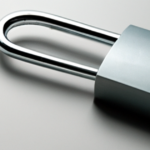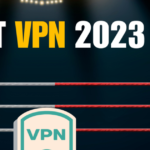Understanding VPN Encryption
Mechanisms Behind VPN Encryption
When we talk about VPN encryption, there are two main building blocks that come into play. First, there’s the encryption algorithm, which scrambles your data and makes it unreadable for anyone intercepting it. Then there’s the key, a unique code needed to decrypt the data. Popular encryption algorithms include AES (Advanced Encryption Standard) and RSA (Rivest-Shamir-Adleman). For a high level of security, a VPN should ideally use 256-bit AES encryption.
Identifying and Rectifying VPN Leaks
Detecting DNS, IP and WebRTC Leaks
To ensure your VPN is properly encrypting your data, it’s essential to detect and resolve any leaks. There are a few common types of VPN leaks that can be easily detected with some online tools:
- DNS leaks: When your VPN fails to route your DNS requests through its secure tunnel, this exposes your browsing history to your ISP. To check for DNS leaks, you can use sites like DNS Leak Test.
- IP leaks: These occur when your VPN is not adequately hiding your real IP address. To check for IP leaks, visit websites like WhatIsMyIPAddress.com, which displays your IP address and location.
- WebRTC leaks: WebRTC leaks happen when your browser reveals your IP address even when you are using a VPN. To test for WebRTC leaks, you can use Browser Leaks.
Enforcing Kill Switch for VPN Connections
A kill switch is a feature that automatically cuts off your internet connection if your VPN connection drops. Enabling a kill switch is essential as it prevents:
- Unwanted exposure of your real IP address
- Data transmission over unsecured connections
Many VPN providers include a kill switch in their apps and settings. I would recommend double-checking to ensure that your VPN has this feature and enable it if possible.
Testing VPN Using Wireshark and other Tools
Several tools can help further verify if your VPN is encrypting your data, one of which is Wireshark. Wireshark is a packet analyzer that allows you to inspect your internet traffic in real-time. By using Wireshark, you can look for any unencrypted data leaving your device, which might suggest that the VPN is not properly protecting your connection.
Checking for encryption can also be done using websites that provide detailed information about your connection, like ipleak.net. Such websites display information regarding your IP address, location, and the VPN server you are connected to.
In conclusion, regularly testing your VPN for leaks and taking necessary actions, such as enabling a kill switch and using effective encryption protocols like L2TP/IPsec, PPTP, or SSTP, can help ensure that your VPN connection remains secure and private.
Frequently Asked Questions
How can I verify my VPN encryption?
I recommend using online tools to test your VPN encryption. One common method is to perform a DNS leak test. DNS leak tests help you determine if your VPN is properly encrypting your data. Another useful tool is to check your IP address before and after connecting to the VPN. If your IP address changes, it usually indicates that the VPN is encrypting your data.
What encryption methods do VPNs generally use?
VPNs typically use different encryption methods, such as:
- Advanced Encryption Standard (AES)
- Blowfish
- ChaCha20
- Triple Data Encryption Standard (3DES)
AES-256 is widely used in VPNs due to its strong security and efficiency.
How to check if a VPN connection is secure?
Here are a few steps to check if your VPN connection is secure:
- Look for VPN providers that use strong encryption standards, like AES-256.
- Use online tools like DNS leak tests and IP leak tests to verify your data protection.
- Make sure your VPN supports secure VPN protocols, such as OpenVPN or IKEv2/IPSec.
Can I test if the encryption of my VPN is working?
Yes, you can test the encryption of your VPN using online tools. One reliable way is by checking for DNS leaks, as it shows if your VPN is encrypting data efficiently by protecting your DNS queries. Additionally, you can verify your IP address changes after connecting to the VPN to confirm it’s working correctly.
What are common VPN encryption standards?
Common VPN encryption standards include:
- Advanced Encryption Standard (AES)
- Blowfish
- ChaCha20
- Triple Data Encryption Standard (3DES)
Always look for VPN providers that use strong encryption standards, such as AES-256.
How to identify potential vulnerabilities in my VPN encryption?
Here are some steps to identify potential vulnerabilities in your VPN encryption:
- Verify the encryption method used by your VPN provider, and ensure it is secure and up-to-date.
- Regularly perform DNS leak tests and IP leak tests to check for data protection flaws.
- Research or ask your VPN provider about their security measures and current available updates.
- Opt for VPNs that support secure VPN protocols, like OpenVPN or IKEv2/IPSec.
- Amazon Email Phishing: How to Identify and Avoid Scams - April 11, 2025
- Malwarebytes vs McAfee: Decoding the Ultimate Antivirus Battle - April 11, 2025
- Best Antivirus for Windows 10: Expert Recommendations for 2023 - April 11, 2025









